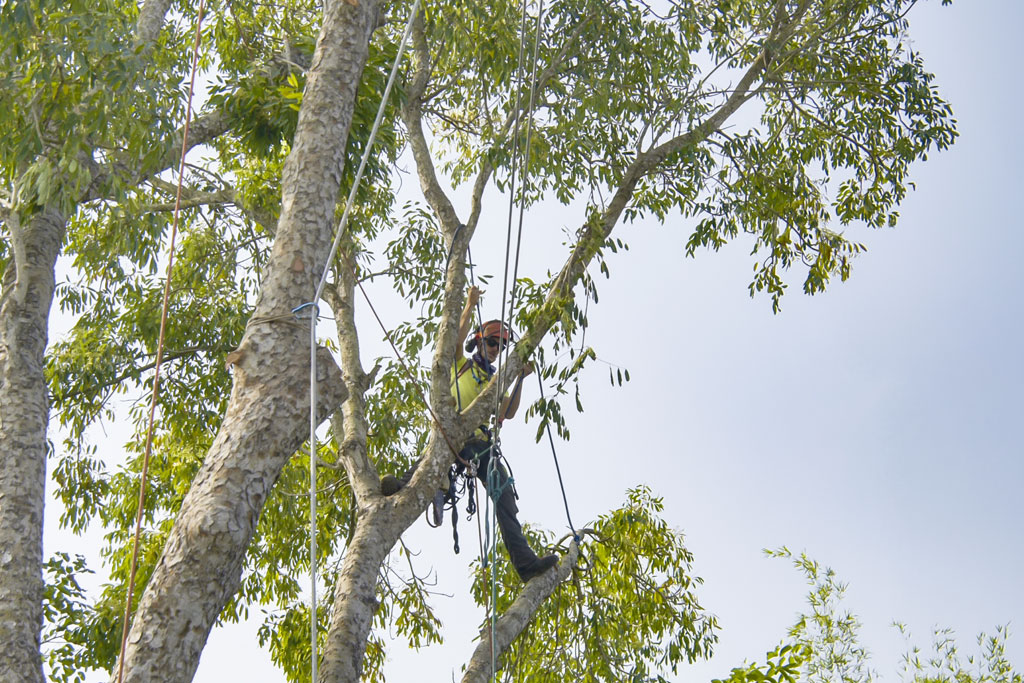All Categories
Featured
The elimination of trees can develop open spaces that are prone to weed intrusion. When trees are present, their dense covers typically shade the ground, restricting the amount of sunlight that reaches the soil. Nonetheless, after the removal of trees, these open areas get increased sunshine, supplying suitable problems for weed growth.

To combat weed intrusion and maintain the stability of the ground, professionals in tree removal can offer important advice on efficient weed monitoring approaches. They might advise making use of compost, which functions as a protective obstacle on the dirt surface area, protecting against weed seeds from germinating and subduing weed development.

The presence of trees promotes an abundant and diverse neighborhood of soil microorganisms. Tree origins offer a source of natural matter, exudates, and nutrients that support the development and task of advantageous dirt microorganisms. Nonetheless, when trees are eliminated, the lack of their roots can interfere with the fragile balance of the dirt's microbial community.
Who Has The Best Tree Removal Wollongong?
This change in pH can affect vitamins and mineral schedule, microbial activity, and overall dirt wellness. To resolve the results of tree cutting on dirt pH, tree elimination specialists can give useful suggestions. They may suggest soil testing to evaluate the current pH degrees and identify the needed modifications. Based upon the outcomes, specialists can suggest pH modification approaches, such as including lime to raise dirt pH or including important sulfur to lower it.

It describes the compression of dirt fragments, causing decreased pore space and increased dirt density. This compaction can adversely influence the dirt's capacity to function ideally, affecting its water-holding capacity, nutrient schedule, and origin penetration. Correct strategies utilized by tree removal specialists can help decrease compaction and protect the dirt's ability to retain water, and enable adequate air movement and cautious equipment handling.
Latest Posts
What Is The Best Spring Wollongong City Council Tree Removal
Is It Worth Paying For Tree Cutting Wollongong?
How Much Does Full Service Stump Removal Wollongong Cost?